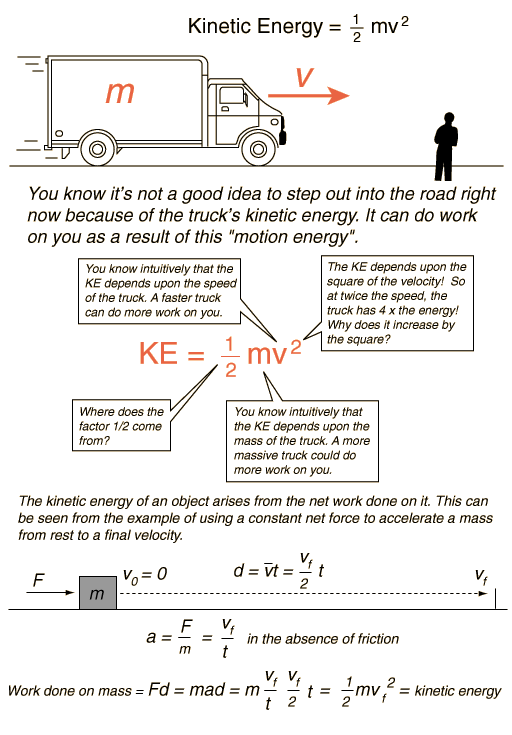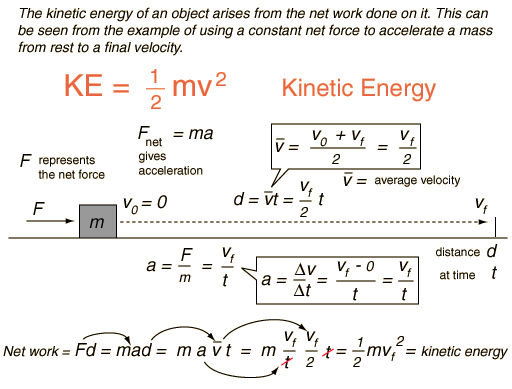Kinetic Energy
Kinetic energy is energy of motion. The kinetic energy of an object is the energy it possesses because of its motion. The kinetic energy* of a point mass m is given by

Kinetic energy is an expression of the fact that a moving object can do work on anything it hits; it quantifies the amount of work the object could do as a result of its motion. The total mechanical energy of an object is the sum of its kinetic energy and potential energy.
For an object of finite size, this kinetic energy is called the translational kinetic energy of the mass to distinguish it from any rotational kinetic energy it might possess - the total kinetic energy of a mass can be expressed as the sum of the translational kinetic energy of its center of mass plus the kinetic energy of rotation about its center of mass.
*This assumes that the speed is much less than the speed of light. If the speed is comparable with c then the relativistic kinetic energy expression must be used
| Development of the kinetic energy concept |
Energy concepts
| HyperPhysics***** Mechanics | R Nave |

